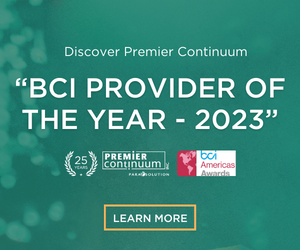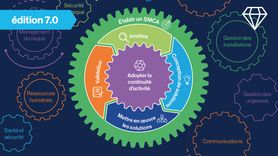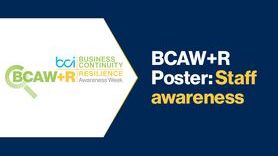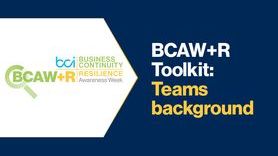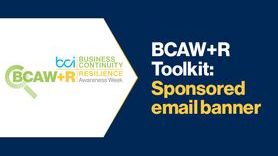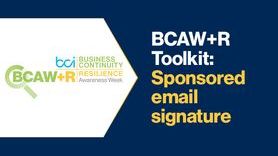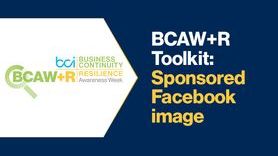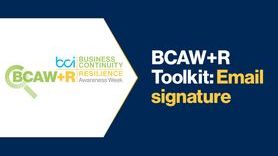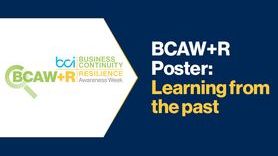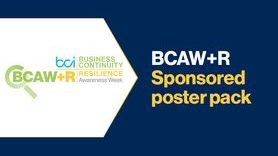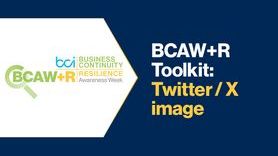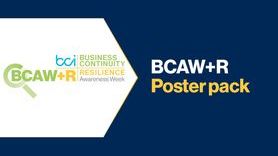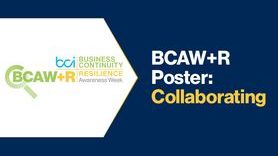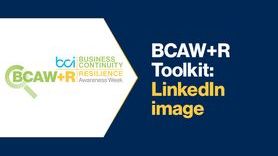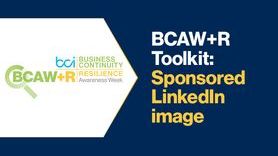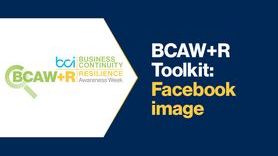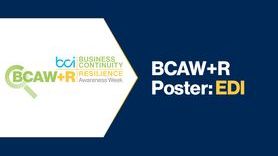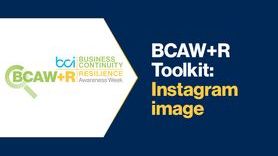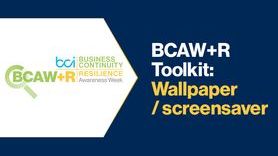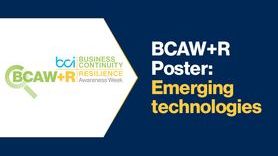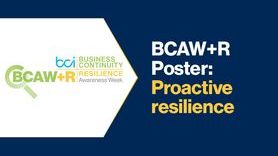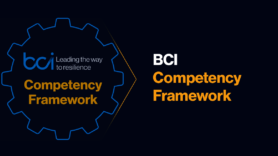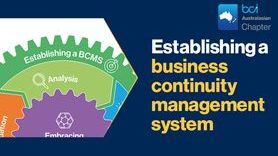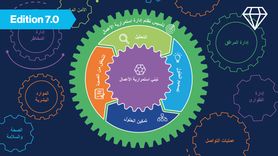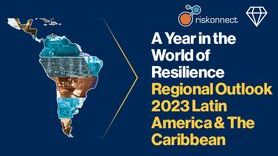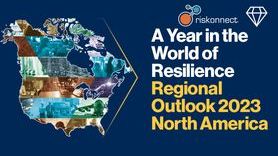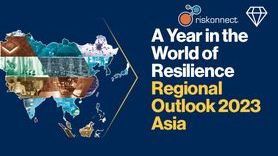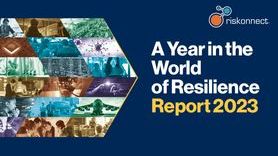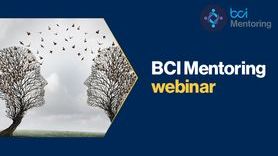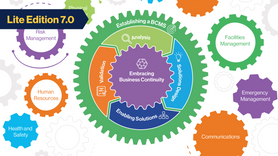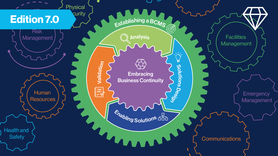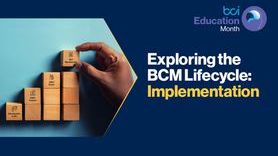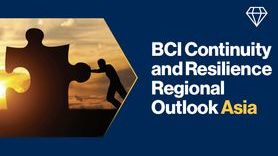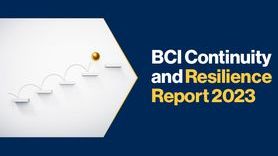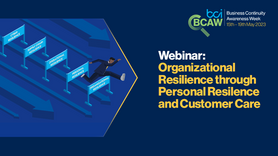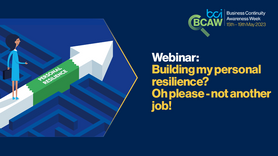Women in Resilience (WiR) Spotlight: Lyndsey Orton MBCI
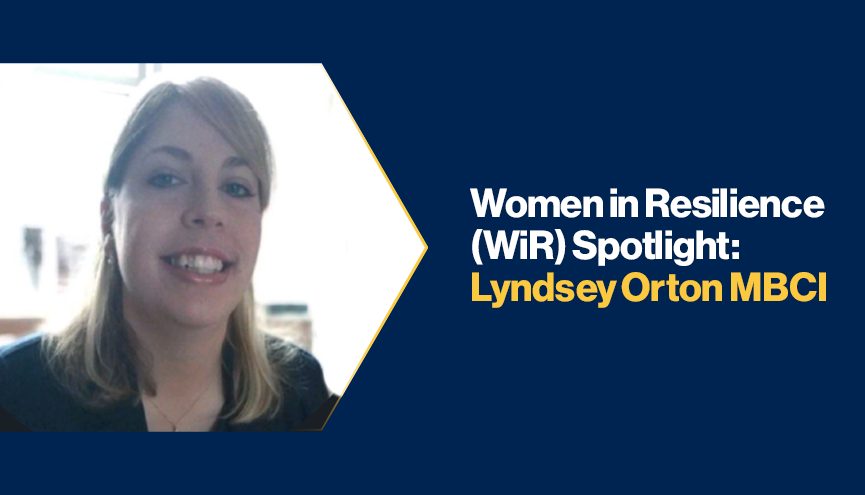
Lyndsey has been in the Business Continuity (BC) and Resilience industry for nine years. As a highly motivated individual with a passion for improving resilience using a risk-based organizational approach, Lyndsey understands some of the barriers encountered by many in this field such as “a lack of buy-in from top management to a quick win attitude preventing a holistic long-term approach.” Her qualifications include an MBCI, ISO Lead Auditor, a First Class Bachelor’s Degree in Disaster Management and Emergency Planning, while she is currently working through a Master’s Degree in Organizational Resilience.
Before completing a Bachelor’s degree in Disaster Management and Emergency Planning, Lyndsey was in the military for 6 years working as a GIS technician. After completing a tour of Afghanistan, Lyndsey felt there were more opportunities in the civilian landscape and decided a geography degree was not a big enough change from previous experience, so instead participated in the Disaster Management degree and learnt about BC, crisis management, civil contingencies and incident management. “From there, after lots of volunteering and hard work, I landed a job as a BC manager, where I could apply and build on that knowledge.”
Although, transitioning from the military and back into normal life was tricky. “It took a couple of years to adjust. There is a lot more freedom and space to be creative, which is something that takes a while to get used to. I got to my current position by building on experience gained in each role I’ve had so far - trying to implement best practice, learning from mistakes, constantly learning and improving my approach as I go,” says Lyndsey. Lyndsey adds that the biggest barrier is “top management who just want results instantly. Anyone in this industry knows that to really achieve a higher level of resilience you have to start by gathering the data, which can take time but will improve the quality of your plans in the long run.” Lyndsey is currently working in and studying supplier resilience as she believes there is a great potential for organizations to improve their approach and resilience in this area.
With regards to turning points and learning experiences, Lyndsey says that “I’ve had many good and not so good managers throughout my career but I always try to learn from the people who have more experience than I do.” Indeed, working in event management and being involved in numerous large-scale events helped Lyndsey understand the requirements for planned, practiced, and coordinated responses to any incident. “Communication is always something that is struggled with in any disruption or incident and this is an area of key focus in any plans I write now,” she says.
Developing skills is also part of the learning experience. “I think a key skill is definitely communication. Clear, concise, timely and appropriate communication in any disruption or incident will increase the likelihood of successfully managing it,” says Lyndsey. She adds that listening is a significant part of communication and can sometimes be forgotten; “you don’t always have to be shouting and loud to manage an incident. That’s often not the most appropriate response. Being able to stay calm, process information and give clear instructions are key.”
On the influence of the BCI WiR initiative, Lyndsey notes that it is “great to have a safe space for women to come together and discuss their concerns, issues, thoughts and opinions. Recognising the differences between men and women in this industry is important, as women may have a different approach but actually they can be just as effective as anyone else’s. I see many men in the industry, and this is not a bad thing, but increased diversity always adds value to any group.” Lyndsey would also like to see more women taking key roles, such as Chief Resilience Officer positions.
Looking ahead, she adds that “the increased focus on our supply chains will be key moving forward as they become more complex and global in the future with increased risks. I would also like to see more public and private sector cross over as we can learn so much from both approaches.”
To conclude, Lyndsey talks about how resilience is a great way to influence an organization holistically. “You get to learn the whole business, meet many people and add so much value. It isn’t just about writing plans for dealing with disruptions, you can also help people improve their processes, plan workarounds, and connect teams together who might have previously been siloed.” In addition, with regards to the impact of regulations, she adds that “it is also an industry which is becoming more focused and critical as regulators are aiming to enforce a certain level of activity. The financial sector is leading the way in getting resilience right.”
